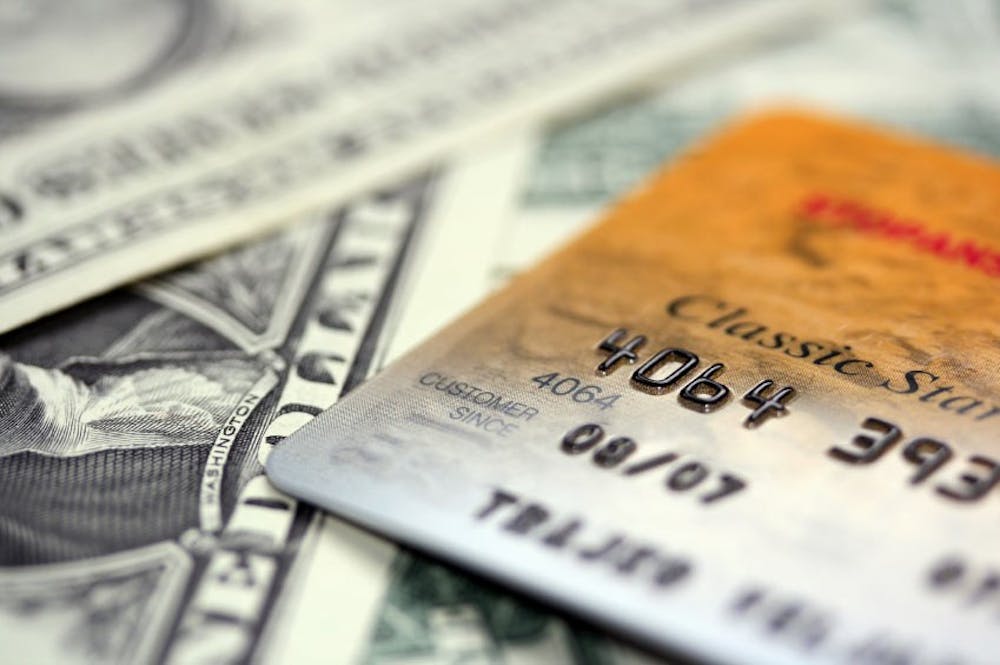“Wifi: No hardware installed.” The unwelcome message flashed across my computer screen last Thursday. After three hours of repeating the same futile steps to revive it, I decided to seek professional help. My computer spent the weekend as a guest at the Quaker Bridge Apple Store.
Four days later, when I returned to the store to pick up my device, the register rejected my only credit card. I panicked for a moment, thinking that Apple would detain my computer. Fortuitously, I had enough cash in my wallet to pay for the repairs. But, in having to pay in cash, I was forced to pay closer attention to the exact cost. Before, I would have swiped my card with little regard to the price the register displayed.
As I rode back to campus, clutching my computer with a fierce protective instinct, I wondered how often I use my credit card without thinking about the charge. In this case, the spending was necessary because I needed a functional computer. With other purchases, however, do I even pay attention?
As a society, we have embraced an electronic economy. Our use of cashless cards, both credit and debit, is astronomical. In 2015, the most recent fiscal year for which the Federal Reserve System has collected data, American consumers executed more than 144 billion cashless transactions, twenty-one billion more than the number in 2012. In total, Americans spent nearly $178 trillion in virtual money.
Respected scholars at peer institutions advocate for eliminating cash altogether, arguing that paper currency is no longer practical and benefits black markets. They envision a national economy fueled solely by credit and debit cards and other virtual platforms, such as the money-sharing app Venmo.
A cashless economy would endanger our centuries-strong tradition of financial autonomy and accountability. Cashless platforms facilitate imprudent and impulsive spending, because we are less likely to care about the amount we spend than if we used cash. Cash is tactile, making us painfully aware when it leaves our wallets. Nothing, however, seems to happen when a cashier swipes a credit card. We defer the actual payment, making purchases easier to stomach. In fact, Visa cites the higher spending that results from cards to encourage its business clients to accept cashless payment.
Debit cards do not defer payment. Instead, they immediately deduct money from the spender’s banking account. An oblivious spender would soon drain his account. Nonetheless, debit cards are not a panacea. They still transfer money without cash, contributing to our financial complacency.
With the benefit of hindsight, we know that the 2008 financial crisis largely came about because Americans spent beyond their means, taking out mortgages and loans that they could not afford. While Wall Street bears no small responsibility for this systemic failure, cashless platforms also contributed. Consumers put down electronic down payments of sizes that they evidently failed to appreciate.

Abandoning cash jeopardizes more than just our personal finances. It also endangers our economic security. Electronic transactions rely on a complicated and fragile infrastructure. So, threats as diverse as natural disasters, hacking attacks, electrical shorts, and government surveillance loom when we buy and bank online. These threats would only compound if we were to reject cash.
In the four days I was bereft of a computer, my connection to the online world was tenuous at best. Commonplace tasks, from printing to logging into Princeton’s Central Authentication System, became impossible. If a simple hardware malfunction could so severely limit my activities, imagine the catastrophic effects of a failure in our national network.
While cash may seem to be a vestige of the past, it helps us to spend responsibly. Cash transactions are immune to technical malfunction and continue to serve a useful purpose. We should not be complacent about our financial security for the sake of convenience.
Jon Ort is a first-year from Highlands Ranch, Colo. He can be reached at jaort@princeton.edu.









